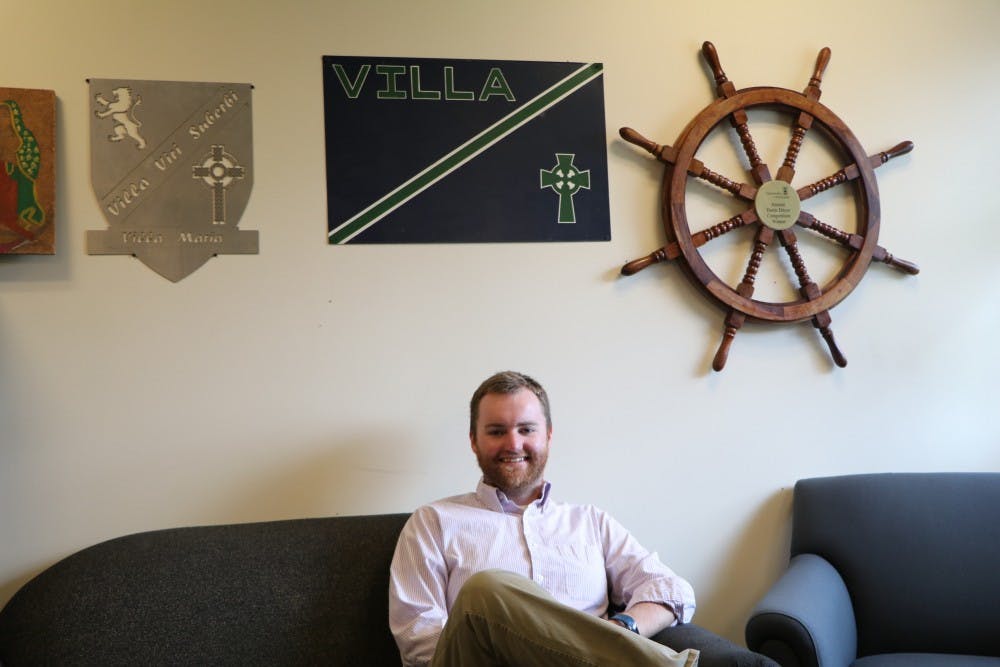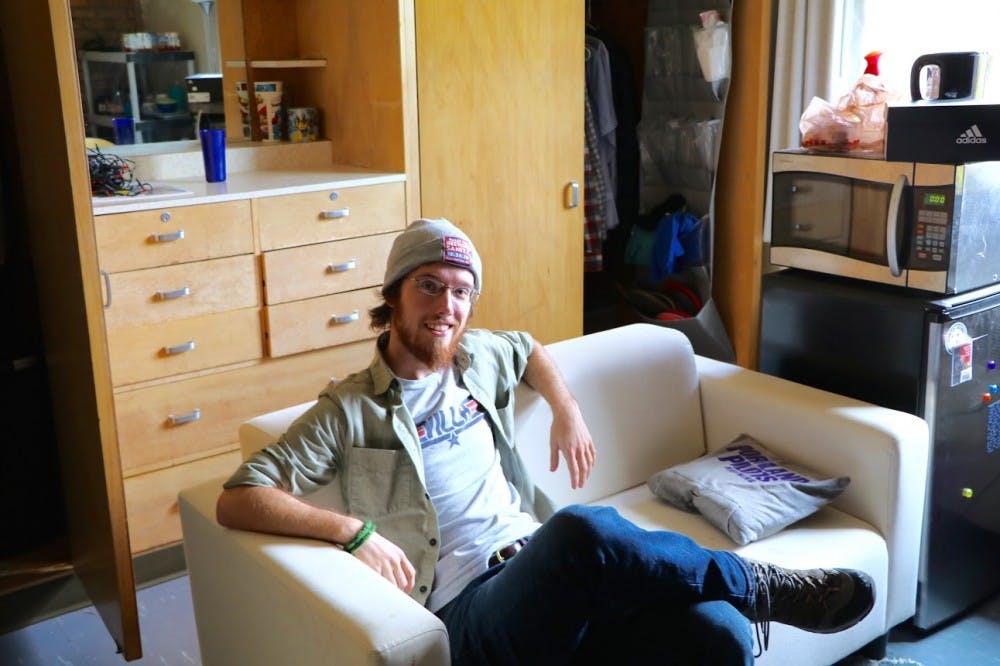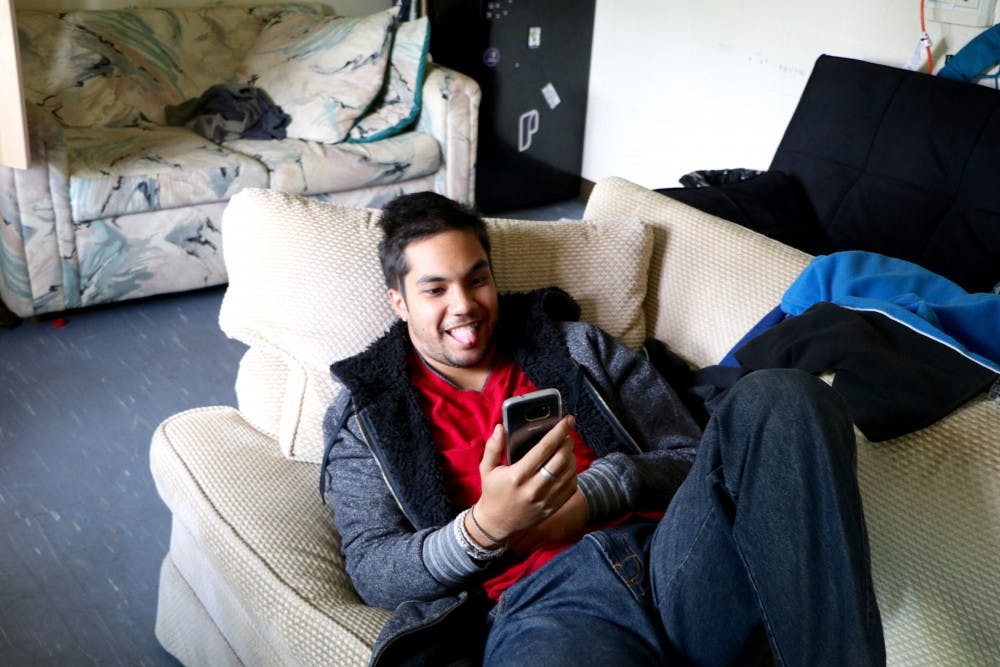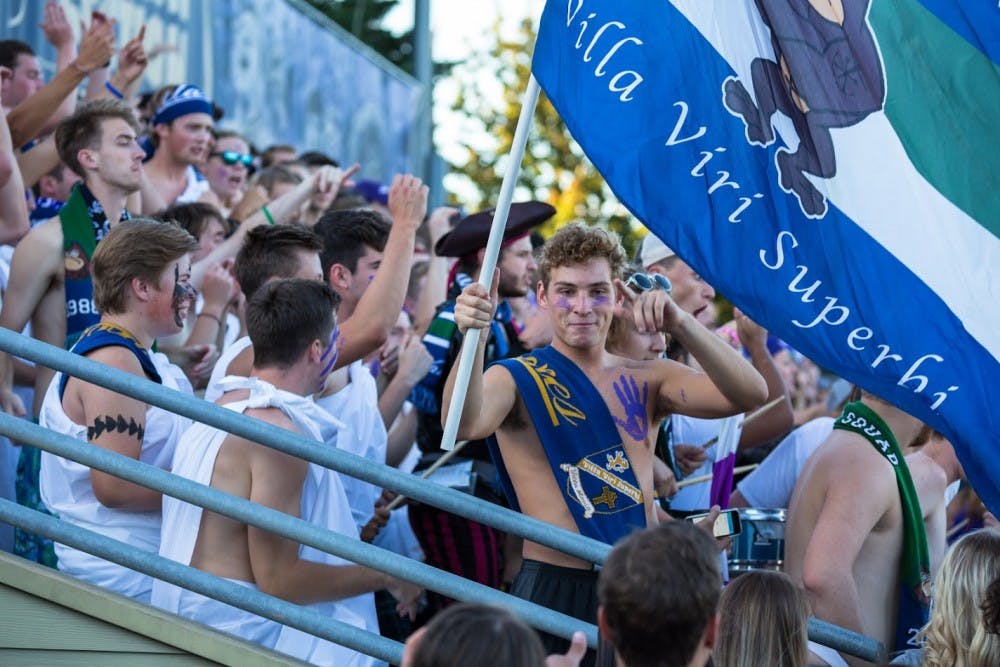Senior Austin Sly was walking into the library one day during his sophomore year when he saw his friend Elijah Fisher, who was facing a dilemma. As an avid “Hamilton” enthusiast, the theater major was thrilled to learn about open auditions for the cast of “Hamilton” happening up and down the West Coast. But when Sly encouraged Fisher to try out, the fervor was dampened. Fisher said he didn’t have the time or money to do so.
This sparked a brotherly quest for help. Sly went back to his dorm in Villa Maria Hall that night, and conspired with his fellow Villans, telling everyone about the audition. Through a slew of donations, Villa residents paid for a $400 plane ticket that sent Fisher to San Francisco to try out for a role in the award-winning Broadway hit.
Though Fisher wasn’t called back for “Hamilton,” this is the kind of community atmosphere that made 64 percent of junior residents make the decision to spend their senior year, once again, in a Villa dorm room, a larger retention rate than any other dorm.
The all-male residence hall is widely known for its Villa drum squad and annual man auction, and is perceived by some to be the “fraternity” dorm on campus. But from an insider’s perspective, the residents are a family.
According to Villa Maria Hall Director Matthew Connolly, there are currently 23 residents who are considered seniors by credit living in Villa, though not all of them have lived in Villa for all four years and only 13 are four-year Villans.
“As the hall director, it’s kind of cool to step into (Villa’s) community,” Connolly said. “It comes down to a lot of acceptance. As soon as you walk into those doors, you are automatically a Villan.”
Connolly has been the hall director for only two years, and he said he immediately felt the sense of family. He also emphasized that one of the reasons some residents stay for all four years is because of the “power of the community.”

Villa hall director Matthew Connolly in his office with Villa memorabilia
Last year, according to Connolly, they hosted a memorial for a resident who suddenly lost their father. The high amount of people who came to the memorial and showed support symbolized the compassion each resident had for one another.
Since the first day, freshmen are welcomed by returning students with open arms and a helping hand. Many Villans said that they have never been in a community as close and as tightly-knit as Villa Maria.
“Coming from Hawaii, I never really had many friends who had similar interests as me,” senior John Cambra said. “I came here and I kind of felt like I belonged in a community for the first time.”
During his freshman year, Cambra came to the University of Portland all by himself. As he was walking to the dorm, carrying two suitcases, one backpack and his guitar case, a flock of Villans came running toward him to help.
“Everybody knows about the fun we have and stupid things that we do because it’s pretty apparent,” Sly said. “But way beyond that, there’s a serious level of care in the community that a lot of people don’t necessarily see as much when you don’t live there.”

A few years ago, two Villa Maria alumni, Pat Ell and Craig Swinyard, recognized the significance of maintaining fourth-year Villans in the dorm. Ell and Swinyard raised enough money to create the Bishop’s Award, an annual scholarship that only goes to seniors who live in Villa Maria.
Two upperclassmen receive $1,000 per semester in financial aid. Applications open and are distributed to interested upperclassmen in late winter/early spring. To qualify, residents must be in good standing in terms of grades and demonstrate leadership in the dorm. Since housing is paid for RA's and students in ROTC, they are not eligible for the award.
“Freshmen and sophomores kind of look up to these guys, who had been in the building for so long,” Connolly said. “So they kind of understand that by staying here for all four years, that commitment comes with that sort of leadership role.”
One of the other factors that contribute to residents returning to the dorm is the variety of interests, whether it’s playing Dungeons & Dragons, arts and theatre or hiking expeditions.
“There’s so many different interests in the dorm that no matter what you’re into you can always find somebody else who has the same interests as you,” senior Michael Birkhead said. “And because of that, people are a lot more hesitant to leave.”

Senior John Cambra hangs out in a room in Villa
In addition, there is no apparent divide across year levels. Freshmen, sophomores, juniors and seniors all intermingle with each other. A big part of their community is the open door policy: if residents are in their room, they are encouraged to leave their door open.
Sly said that at any given night, residents will hang out in the lobby until two in the morning. Whether it is the crazy ideas and pranks they pull or racing with shopping carts or even playing Yu-Gi-Oh games, the idea that residents gather together to create memories and have fun leaves a mark on the Villans.
“I’ve always said this, but as an RA now, I don’t think we’re the most important people in the community,” Sly said. “I think it’s all the seniors who come back and choose to live here without that title.”
At the end of each school year, the dorm hosts a Villa Maria banquet to commemorate and celebrate graduating seniors, whether they stayed the whole four years or not. Each graduating senior gives a speech and talks about their unforgettable memories and experiences in the dorm.
“I don’t think there’s any place I’d rather be,” Cambra said. “I wouldn’t be nearly as happy if I was living off-campus or in another dorm throughout the four years. Coming from a place where I didn’t really have that kind of community, this group of people would care so deeply, it’s touching.”








